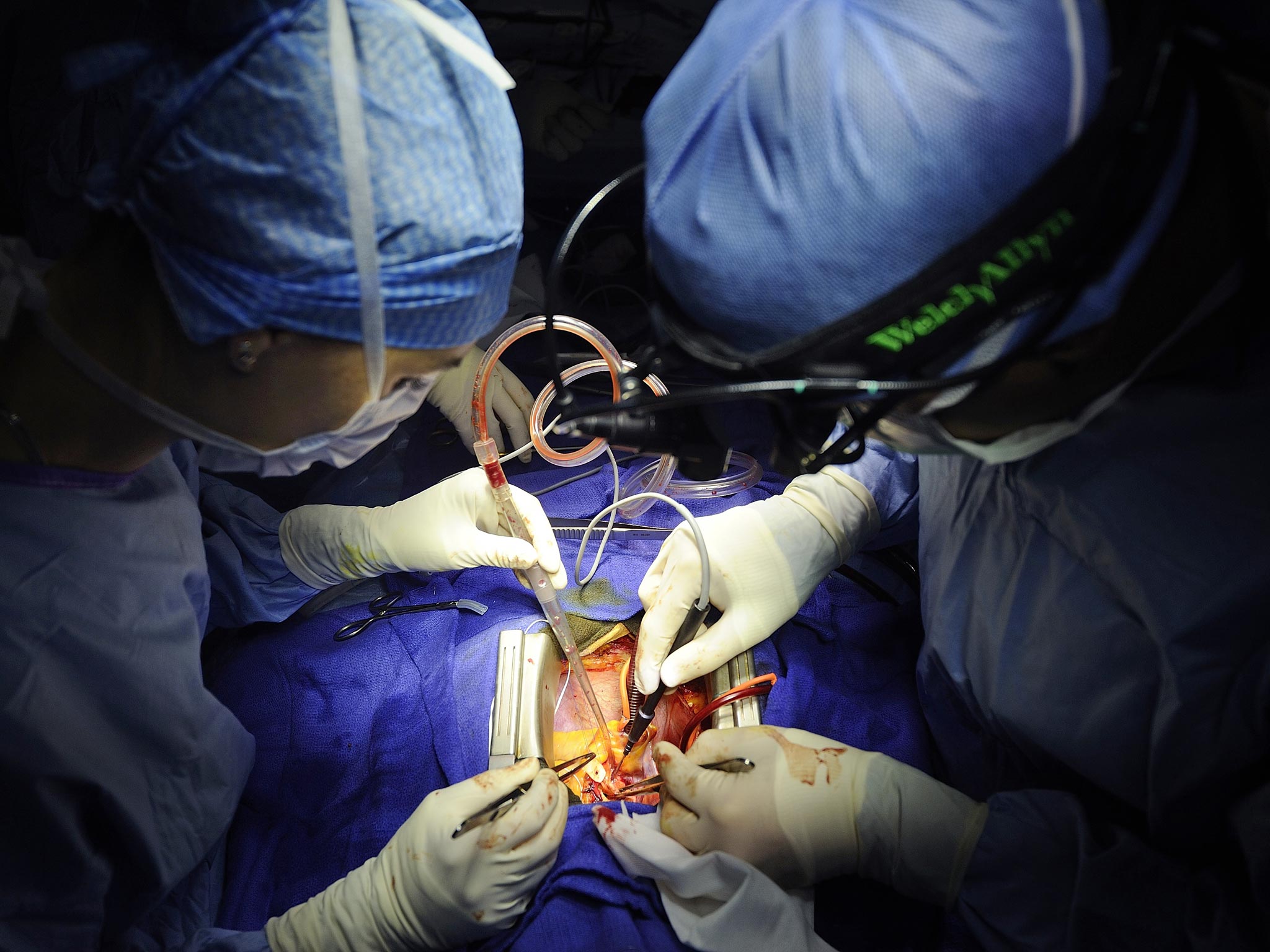Plastic surgeons criticise government over new rules
Government published its response to cosmetic procedures review following PIP breast implant scandal

Your support helps us to tell the story
From reproductive rights to climate change to Big Tech, The Independent is on the ground when the story is developing. Whether it's investigating the financials of Elon Musk's pro-Trump PAC or producing our latest documentary, 'The A Word', which shines a light on the American women fighting for reproductive rights, we know how important it is to parse out the facts from the messaging.
At such a critical moment in US history, we need reporters on the ground. Your donation allows us to keep sending journalists to speak to both sides of the story.
The Independent is trusted by Americans across the entire political spectrum. And unlike many other quality news outlets, we choose not to lock Americans out of our reporting and analysis with paywalls. We believe quality journalism should be available to everyone, paid for by those who can afford it.
Your support makes all the difference.New rules on cosmetic procedures will leave the public “no better protected” and represent “a thoroughly wasted opportunity” to crack down on unsafe practitioners, plastic surgeons have said.
On Thursday the Government published its response to a major review of cosmetic procedures in the UK, which was led by the chief medical officer of the NHS in England last year, Sir Bruce Keogh, in the wake of the PIP breast implants scandal.
But in a fierce critique, the British Association of Aesthetic Plastic Surgeons (BAAPS) said it was “no less than appalled” with what it deemed a failure to regulate “the Wild West” of the high street cosmetic industry.
Recent years have seen a huge increase in cosmetic procedures, in particular non-surgical interventions such as dermal filler injections for wrinkles.
In his review, published 10 months ago, Sir Bruce said that increasing numbers of almost entirely unregulated high street clinics offering the services was “a crisis waiting to happen”.
The Government has now agreed with the “overwhelming majority” of Sir Bruce’s recommendations, including legislation to make it illegal for anyone to inject dermal fillers without training and introducing a registry of breast implants.
However, there are no plans for a compulsory register of practitioners of non-surgical cosmetic procedures and staff who give dermal filler injections will only have to be “overseen” by a doctor or health professional. Dermal fillers will not be reclassified as prescription-only – a key recommendation made by surgical professionals.
A “more rigorous” consent process will be introduced for cosmetic surgery, and the health minister Dan Poulter pledged that patients would now have to meet the surgeon operating on them to discuss treatment and sign a consent form in the presence of a doctor. But BAAPS said that loopholes would allow “fly in, fly out” plastic surgeons to operate without personally agreeing consent with the patient.
Rajiv Grover, consultant plastic surgeon and president of BAAPS, said that legislators had paid only “lip service” to warnings from surgeons.
“The fact that there is no requirement for the actual surgeon involved to provide consent for the procedure makes a mockery of the entire process,” he said. “It’s business as usual in the Wild West and the message from the Government is clear: roll up and feel free to have a stab.”
Another professional body, the British Association of Plastic, Reconstructive and Aesthetic Surgeons (BAPRAS), said it was concerned that a proposed register of people performing non-surgical procedures would only be voluntary, warning that it could create “a two-tier system”.
Tim Goodacre, BAPRAS’ chair of professional standards, said that those who signed up for the register would be forced to charge higher prices, leading those that did not to attract people looking for cheap deals.
“Together with the British Association of Dermatologists and BAAPS, we wrote to health minister Dan Poulter in December 2013 to outline the need for this register to be mandatory and we are deeply disappointed that this has been ignored,” he said.
The cosmetic interventions industry has expanded dramatically in recent years, going from a total worth of £720 million in 2005 to £2.3 billion in 2010, and is expected to grow to £3.6 billion by 2015.
The Government said it backed the principle of making dermal fillers prescription only, but European legislation which does not list them as medicines meant they could not be reclassified.
Mr Poulter called the new rules “the biggest reform the industry has seen.”
In his foreword to the Government’s response Dan Poulter said ministers were determined to crack down on “murky practices”.
“At its worst, this is an industry that is exploiting people’s insecurities, driven only by profits and with no regard to the physical and mental wellbeing of patients,” he said.
Join our commenting forum
Join thought-provoking conversations, follow other Independent readers and see their replies
Comments